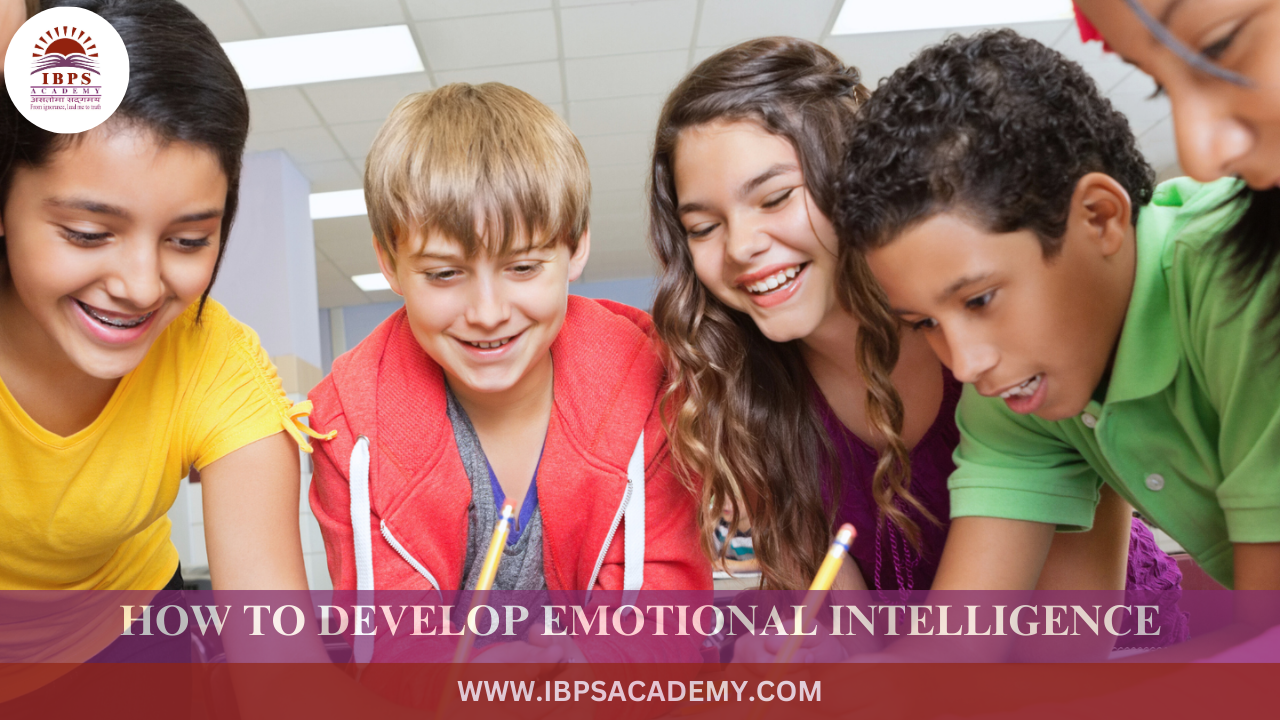HOW TO DEVELOP EMOTIONAL INTELLIGENCE
Published on: Jan 03, 2025
HOW TO DEVELOP EMOTIONAL INTELLIGENCE
Developing emotional intelligence (EI) involves increasing awareness and control over your emotions while enhancing your ability to relate to others. Emotional intelligence is a key skill for building healthy relationships, managing stress, and making better decisions. Here are steps to help you develop emotional intelligence:
1. Self-awareness
- Recognize Your Emotions: Pay attention to your emotions and understand what they are telling you. Are you frustrated, happy, sad, or angry? Learning to label your emotions is the first step.
- Understand Your Triggers: Identify what situations, people, or thoughts trigger certain emotions. Knowing these triggers helps you manage your reactions.
- Reflect Regularly: Spend time reflecting on your emotions, behaviors, and the outcomes of situations. This can be done through journaling or self-reflection.
2. Self-regulation
- Practice Mindfulness: Mindfulness practices, such as meditation or deep breathing, help you stay in the present moment and better manage your emotional responses.
- Pause Before Reacting: Take a moment to breathe before responding to situations that trigger strong emotions. This helps you avoid impulsive reactions.
- Use Coping Strategies: Develop healthy coping mechanisms like exercise, talking with a friend, or creative outlets to deal with intense emotions.
3. Motivation
- Set Meaningful Goals: Having clear goals and a sense of purpose helps you stay motivated, even in difficult situations. Emotional intelligence helps you stay focused and resilient.
- Cultivate a Positive Mindset: Develop an optimistic outlook by focusing on the positive aspects of situations and reframing challenges as opportunities for growth.
- Celebrate Progress: Recognize and celebrate your emotional growth and small achievements to maintain motivation.
4. Empathy
- Listen Actively: Practice listening attentively without interrupting. Understand both verbal and non-verbal cues, such as body language and facial expressions.
- Put Yourself in Others' Shoes: Try to see situations from other people’s perspectives. Understand their emotions and how those emotions influence their behavior.
- Be Compassionate: Show genuine care and concern for others. Offering support in tough times strengthens emotional bonds.
5. Social Skills
- Build Strong Relationships: Foster open, honest, and respectful communication. Take time to understand others and create a sense of trust.
- Conflict Resolution: Learn how to manage and resolve conflicts in a healthy way. Focus on finding solutions, staying calm, and respecting differing opinions.
- Collaboration: Work well in teams by being open, flexible, and willing to support others. Recognize and celebrate collective achievements.
6. Regular Practice and Feedback
- Seek Feedback: Ask for feedback from others on how you handle emotions and interact socially. Constructive criticism can guide your growth.
- Commit to Lifelong Learning: Emotional intelligence is a skill that develops over time. Consistently seek opportunities to improve by reading books, attending workshops, and engaging in exercises that challenge your emotional growth.
CONCLUSION
By practicing these strategies regularly, you can strengthen your emotional intelligence and build stronger relationships, make better decisions, and lead a more fulfilling life.


